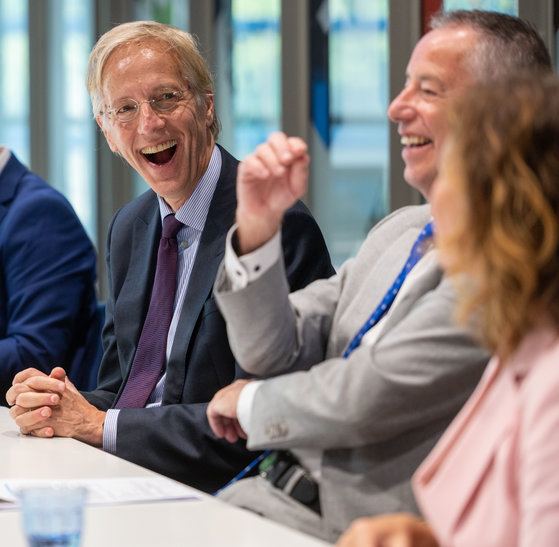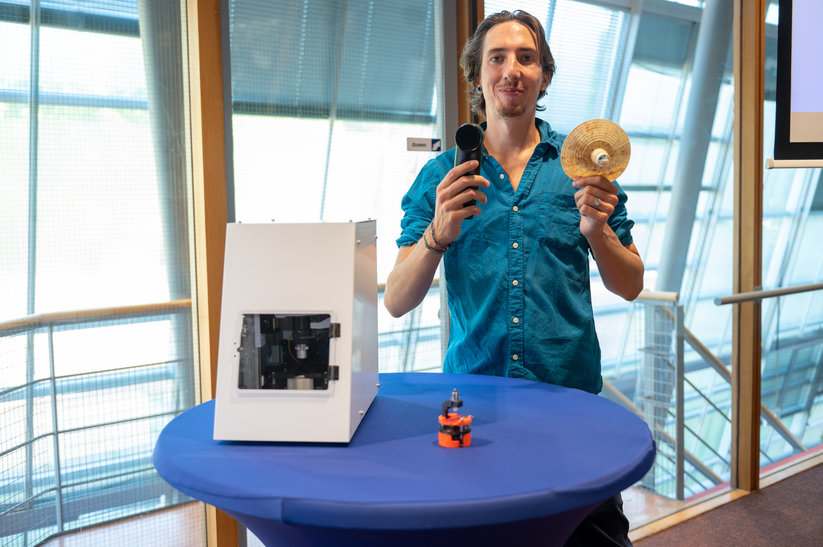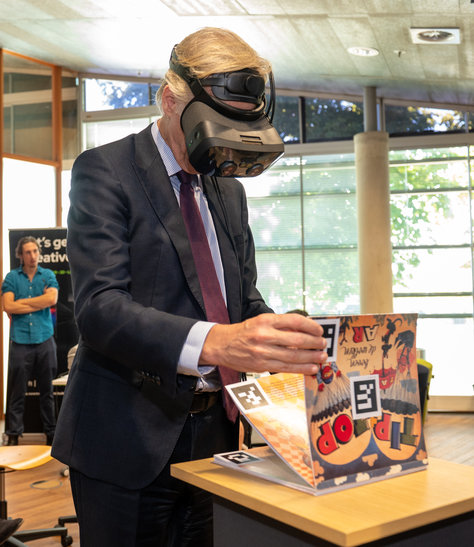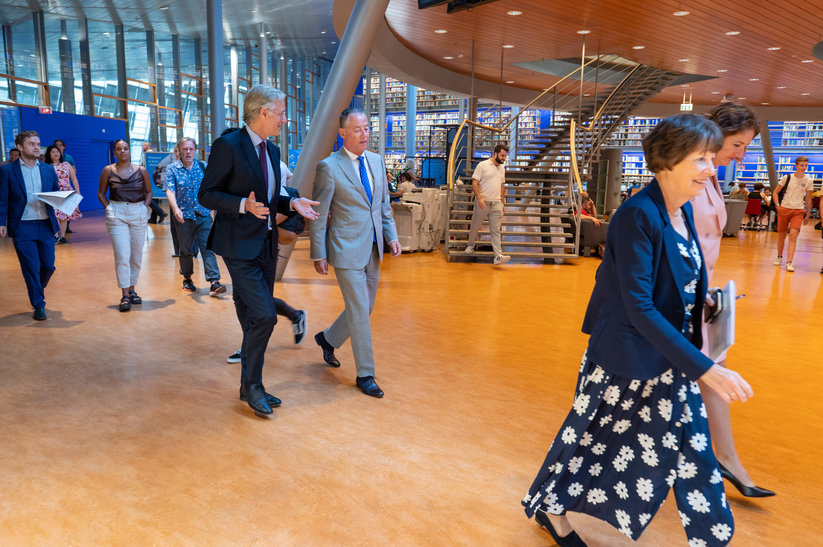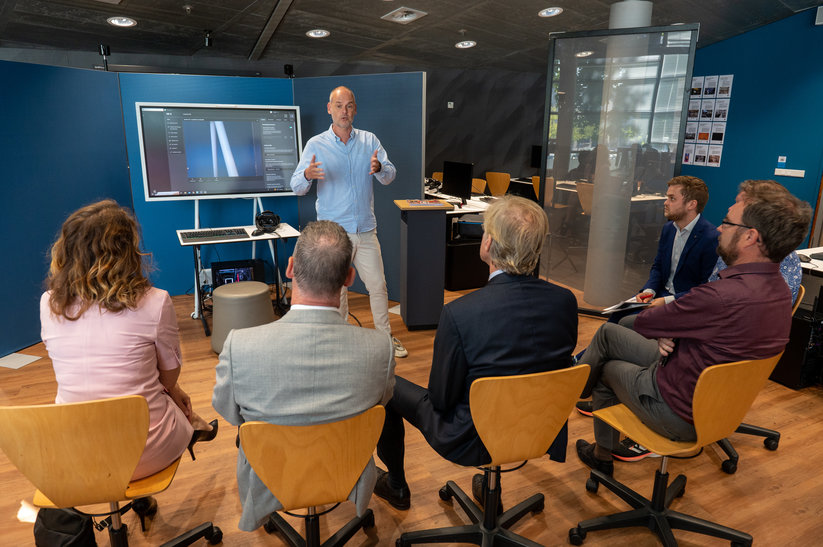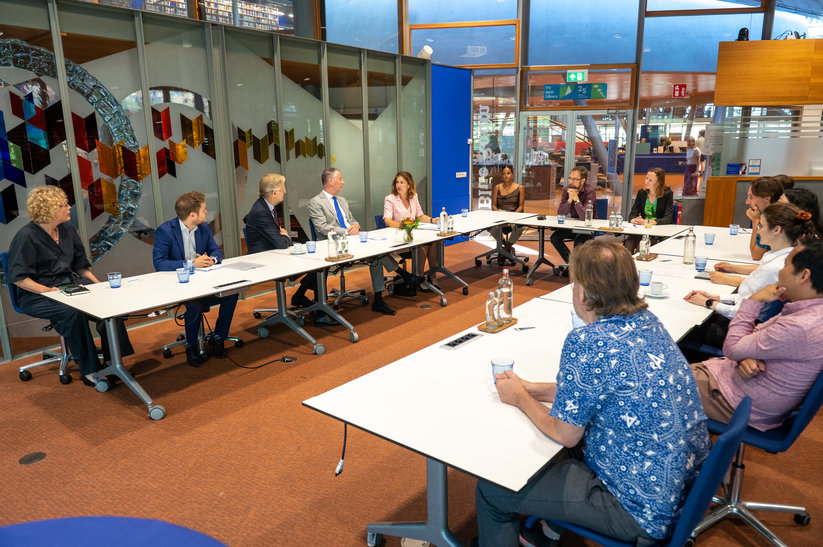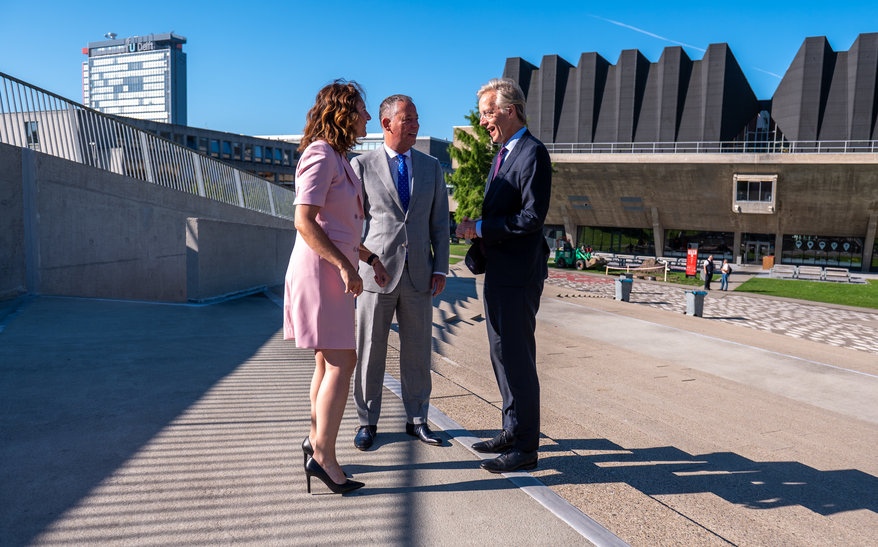TU Delft pioneer in openness
We as Library, together with Tim van der Hagen, had the honour of receiving outgoing minister Robbert Dijkgraaf of Education, Culture and Science. During his visit on September 7th, Dijkgraaf engaged in discussions with various TU Delft scientists about the principles of Open Science in practice. They explored how scientists can openly share their publications, data sets, code, algorithms, models, and more with the outside world, identifying the barriers they encounter in doing so. Furthermore, they discussed how we as Library, and more specifically, through the Open Science program, can help remove these barriers.
Jerry de Vos from the Open Hardware project demonstrated his plastic scanner, an excellent example of open hardware. Colleagues from the New Media Centre showcased how education can become more open by working with holograms of instructors, and how hard-to-access book collections (popup books from the Royal Library) come to life through XR technology. Dijkgraaf even had the opportunity to take a literal look into the world of VR.
The Netherlands and the rest of the world face significant challenges. Therefore, it is crucial that research and scientific results are freely accessible. Open science enhances trust in science and strengthens the connection between science and society. I am pleased with the latest open access figures from Dutch universities, which show that 89 percent of scientific articles in the Netherlands are freely accessible. Today, I spoke with researchers from Delft University of Technology about this important topic. They showed me how they put open science into practice and the tools they use for it. We also discussed the opportunities and challenges of open science. TU Delft is a pioneer in openness, keep up the good work!
Outgoing minister Robbert Dijkgraaf
(Photography: Sicco van Grieken)
If you want to learn more about Open Science at TU Delft and the activities being organized, please continue reading on the TU Delft Open Science website.
